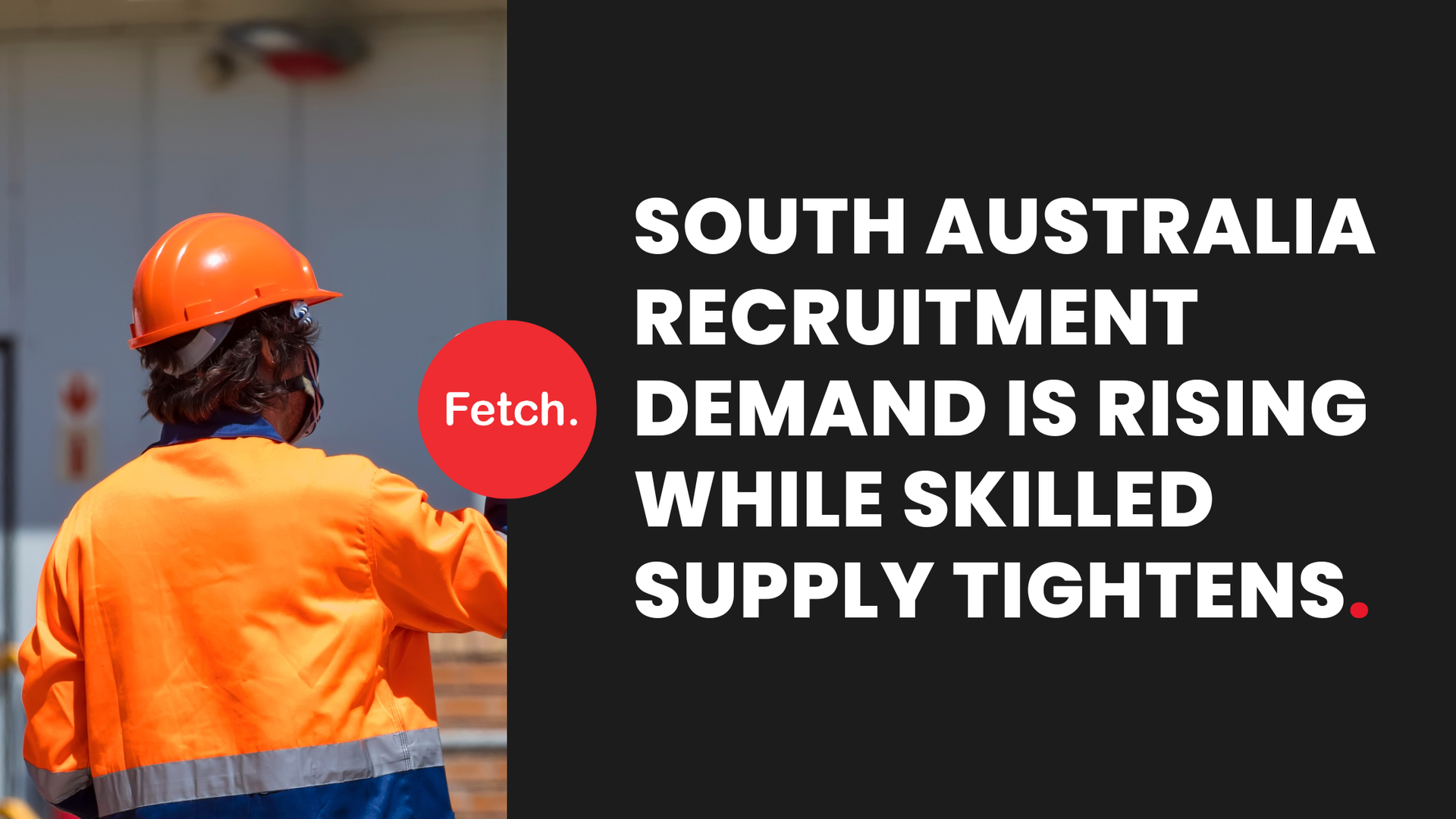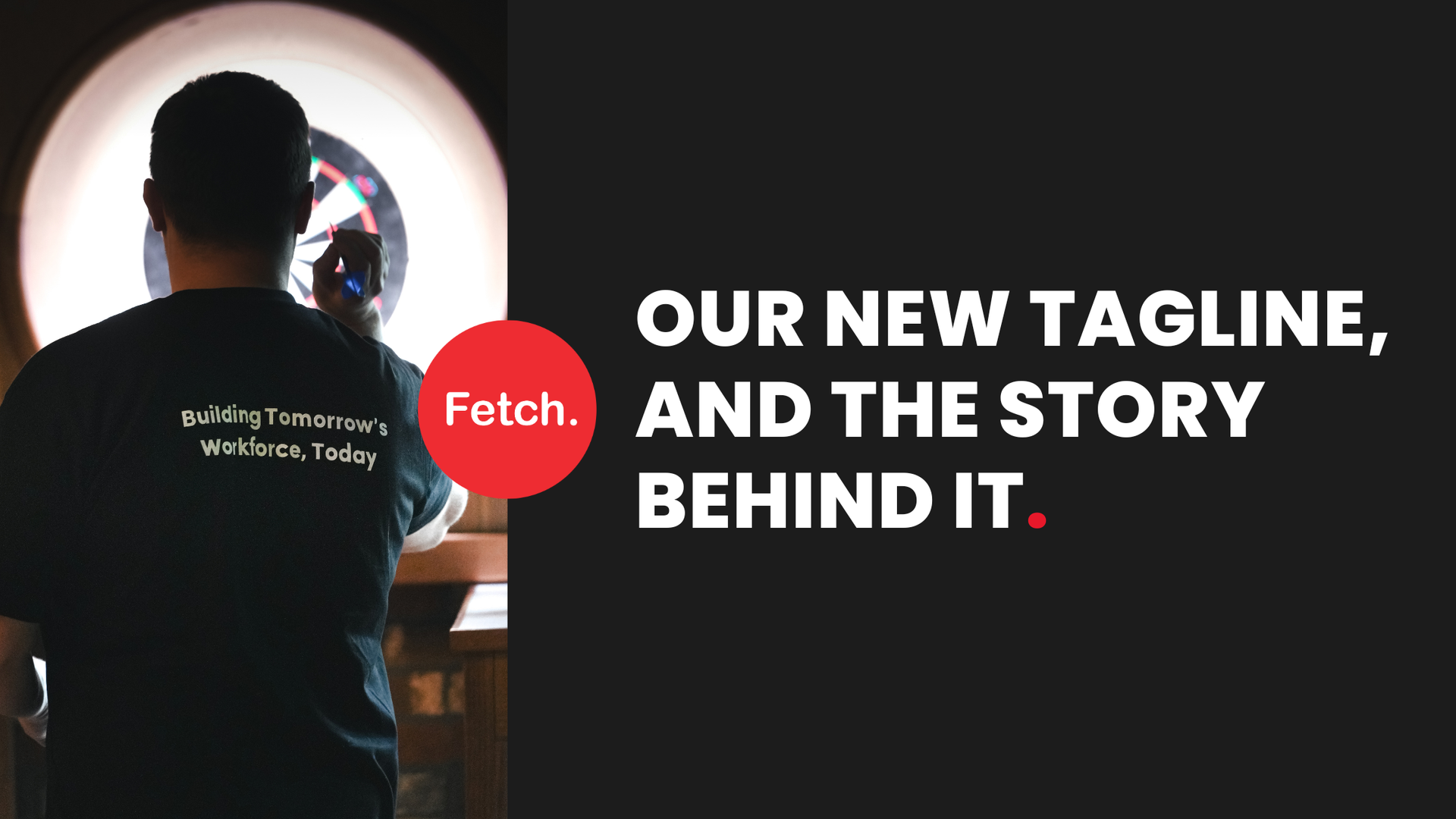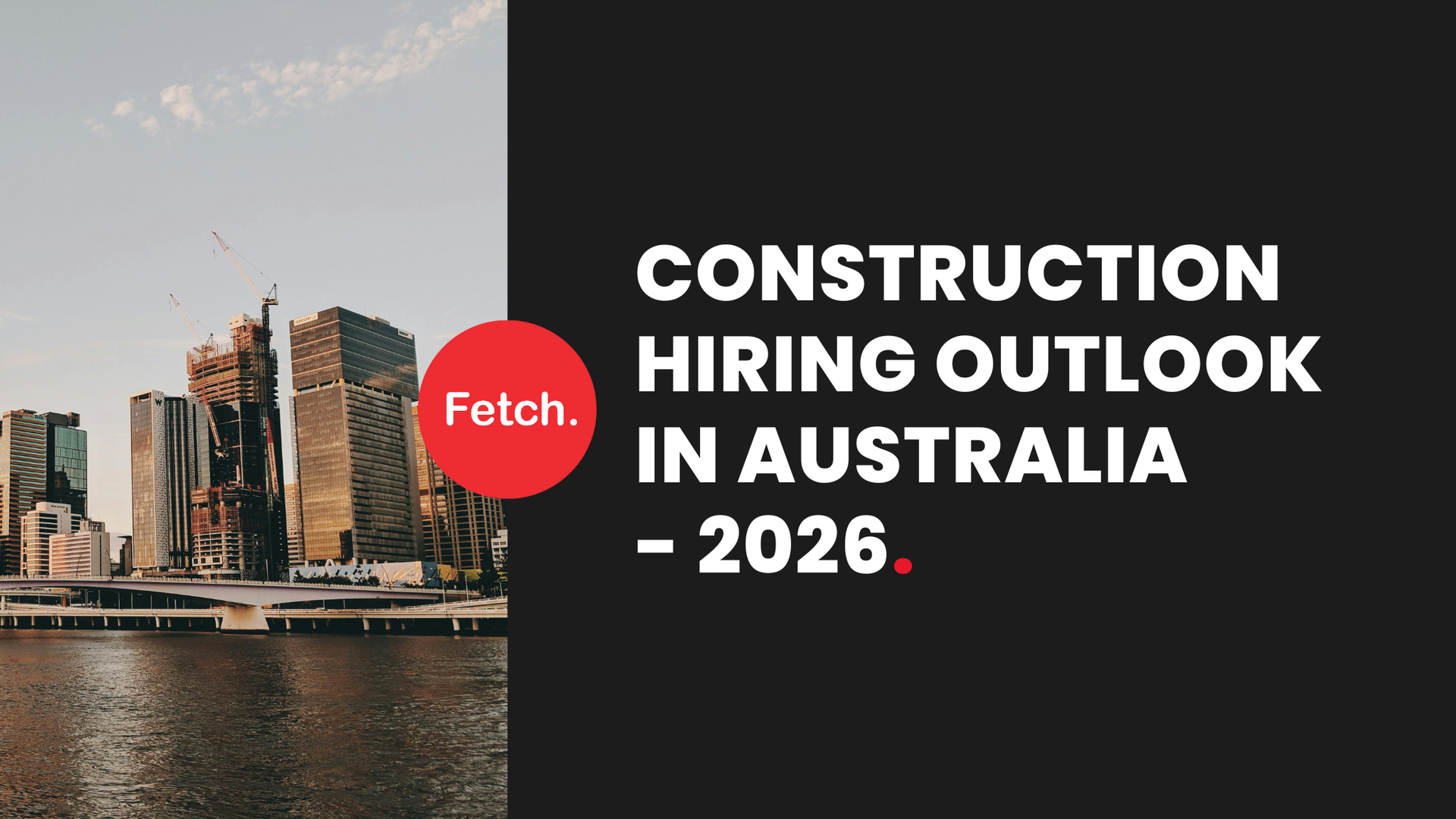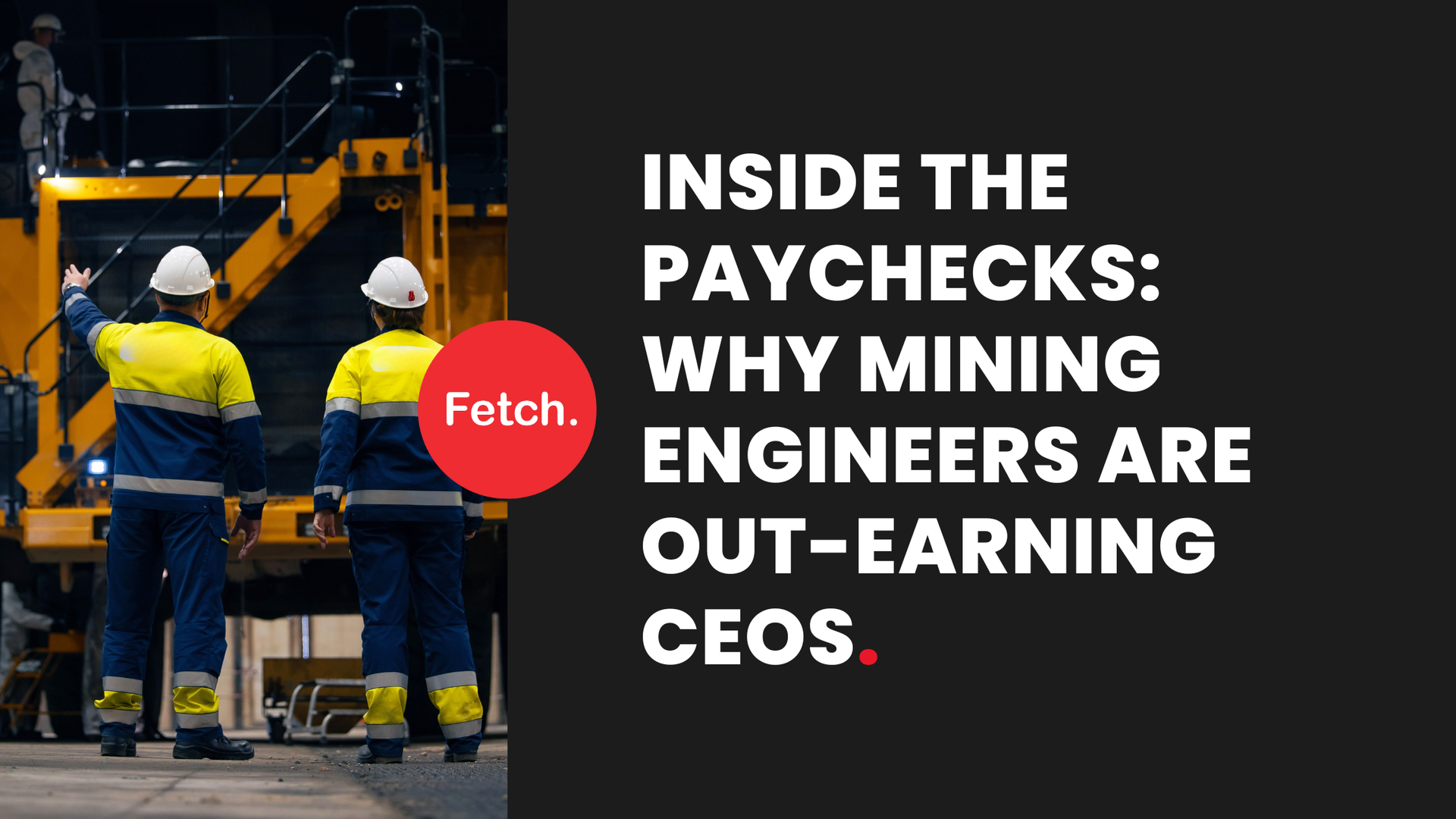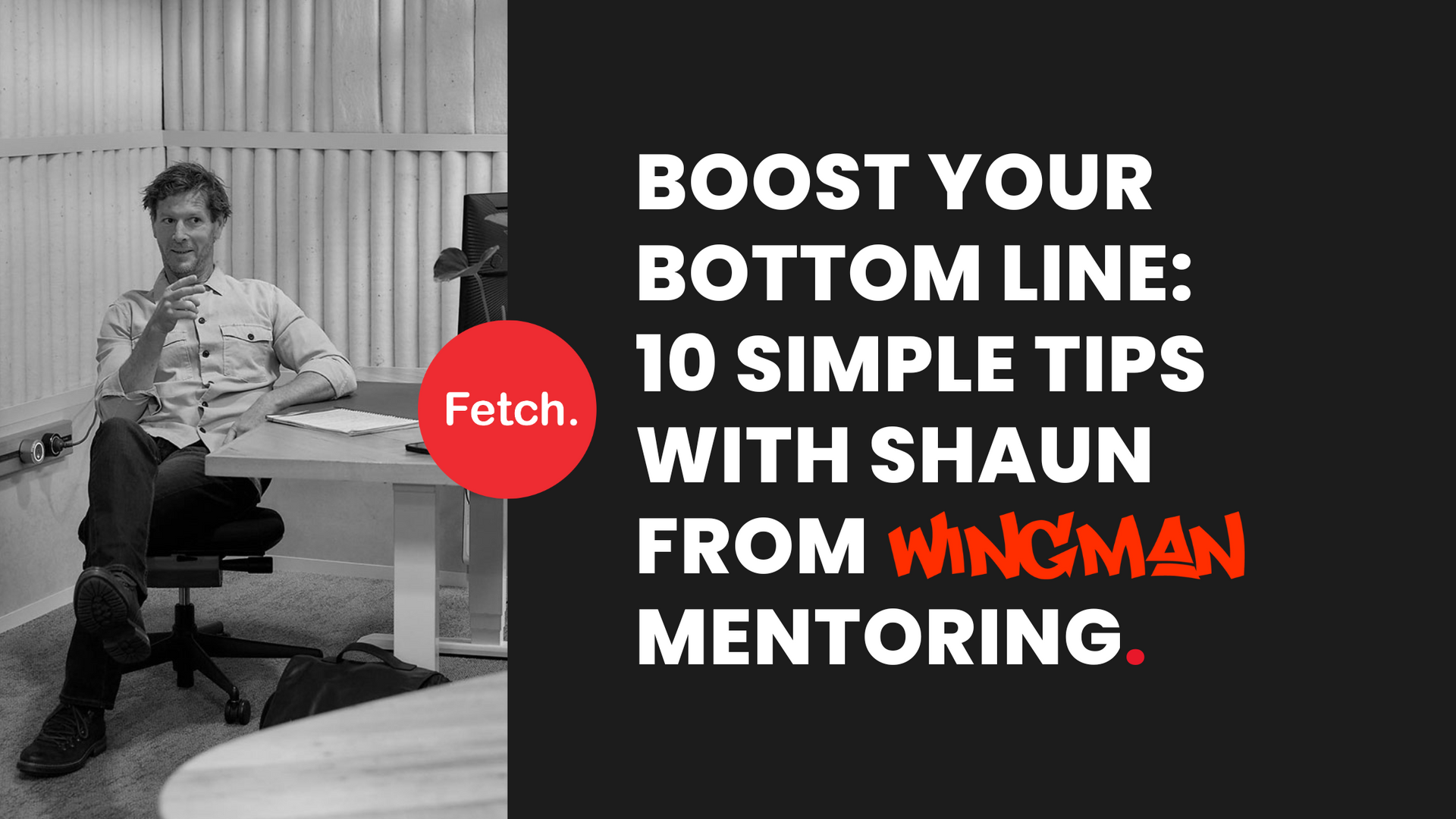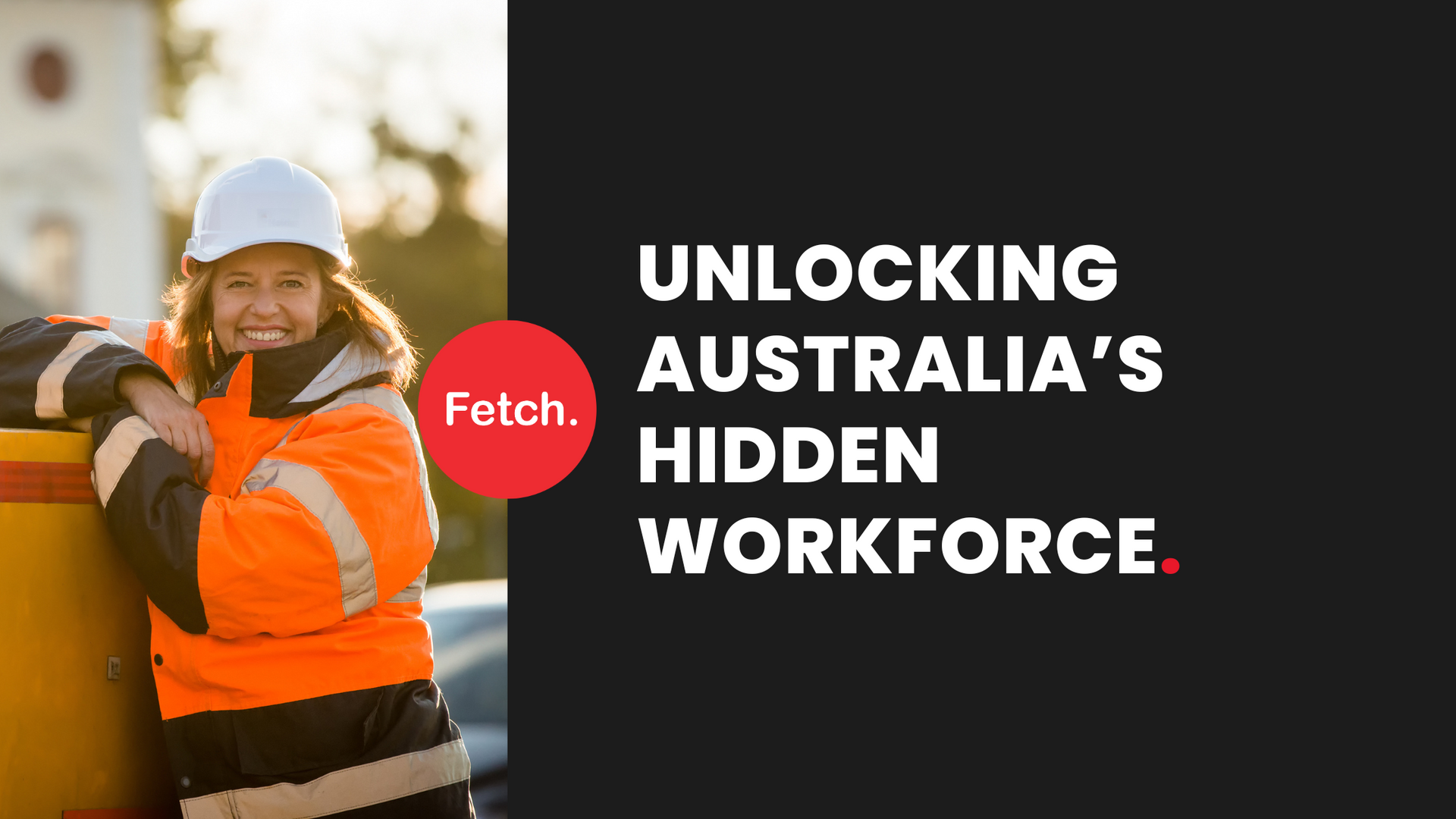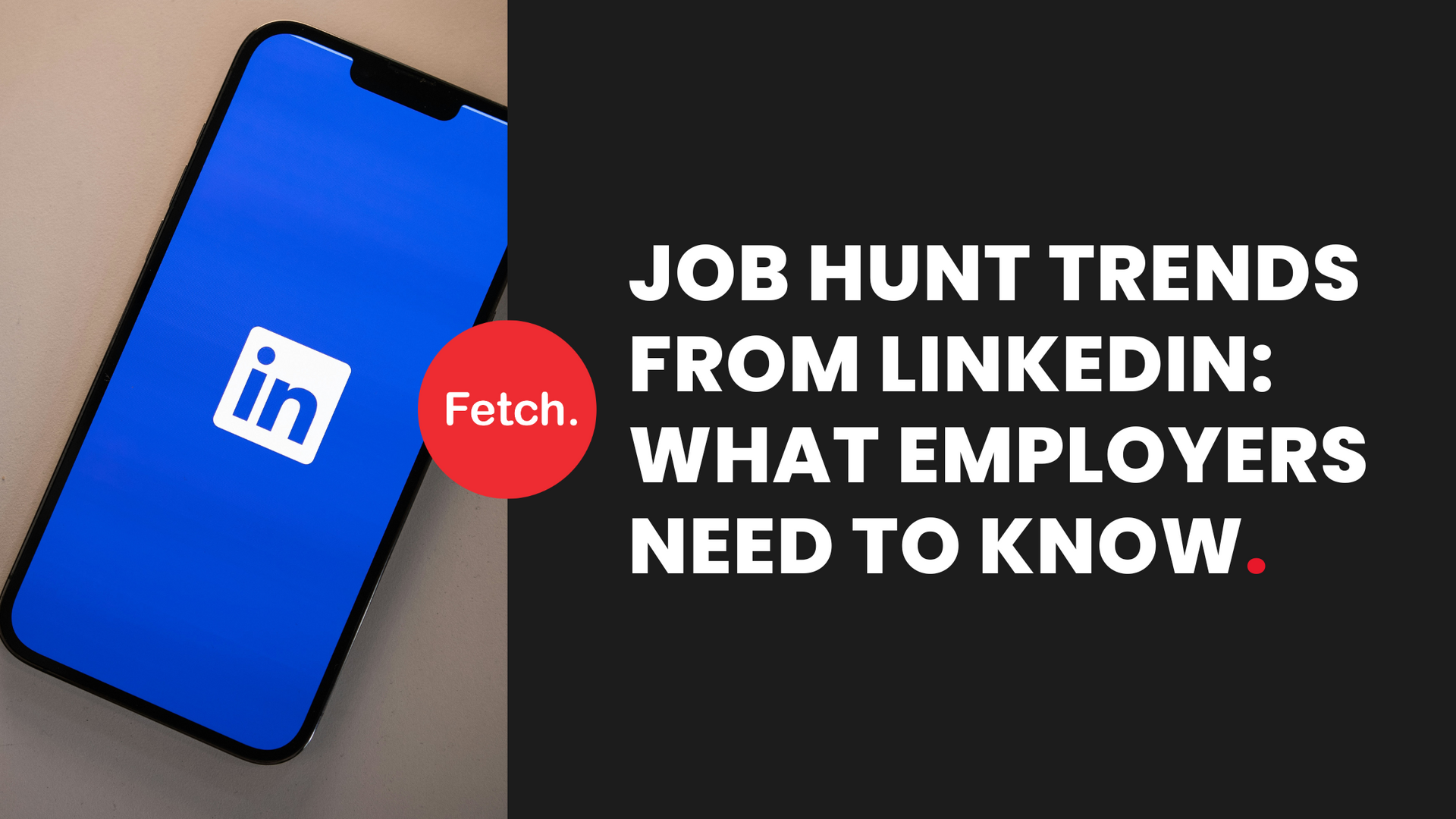Blogs.
Blogs.
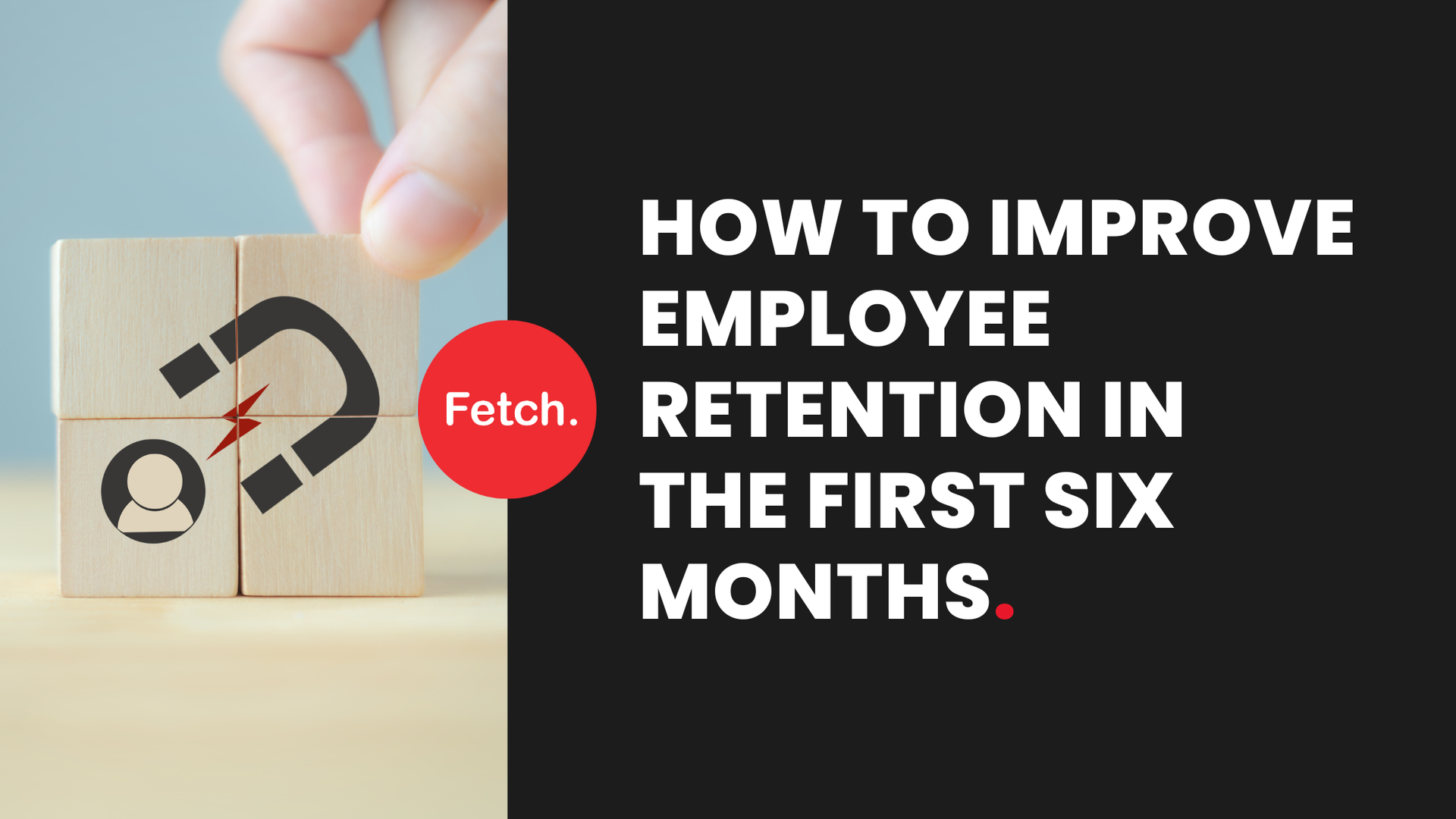
October 12, 2025
Bringing new employees into your business is exciting, but it’s also a major investment. Between advertising, interviewing, onboarding, and training, hiring can take a lot of time and resources. That’s why improving employee retention during the first six months is so important. At Fetch Recruitment , we see firsthand how critical those first few months are in any new role. It’s when trust is built, expectations are defined, and company culture either connects or conflicts. Here are five proven strategies to reduce staff turnover , improve engagement, and set new hires up for long-term success. 1. Be Honest About the Role from the Start One of the biggest reasons employees leave early is that the job isn’t what they expected. When the reality of the role or culture doesn’t match what was described during hiring, disappointment sets in fast. Set clear and honest expectations from the very beginning. Be upfront about both the rewarding and challenging aspects of the job. Let candidates meet the team, see the workplace and ask questions before they start. The clearer the picture you paint, the stronger the long-term fit. 2. Make Onboarding More Than a First Week A great onboarding experience doesn’t end after induction — it’s an ongoing process that continues for months. Structured onboarding helps new hires feel capable, confident and connected. Give them time to understand your business, meet people from different teams and get comfortable in their role. Assign a buddy or mentor who can answer the small questions that make a big difference. Consistent check-ins and support will help new starters build momentum and stay engaged. 3. Set Clear Expectations and Shared Goals Clarity is everything in the first few months. When employees aren’t sure what success looks like or what’s expected of them, confidence and motivation can slip. Outline measurable goals together for the first three, six and twelve months. Discuss how progress will be tracked, what resources are available and how feedback will be shared. When expectations are mutual and transparent, accountability and trust follow. 4. Support, Feedback and Recognition Starting a new role can be daunting, even for experienced professionals. Regular check-ins and feedback make a huge difference in helping people feel seen and supported. Provide frequent, constructive feedback — not just at review time. Celebrate wins early and often, even the small ones. Open communication and recognition build confidence, reduce anxiety and help new hires settle into your workplace culture faster. 5. Invest in Growth from Day One People want to know they’re building a future, not just filling a role. The first six months are the perfect time to show new hires you’re invested in their development. Offer access to training, mentoring or skill-building opportunities early on. Encourage shadowing, collaboration and hands-on learning. When employees can see a clear path to growth, they’re more likely to stay engaged and loyal for the long term. Building Retention Into Recruitment Hiring doesn’t end when the offer is signed. The success of every hire depends on what happens next. When you combine transparency, structured onboarding, clear goals, regular feedback and early development opportunities, you don’t just fill roles — you build teams that last. Fetch Recruitment partners with employers across Australia to help them find, engage and retain great people.
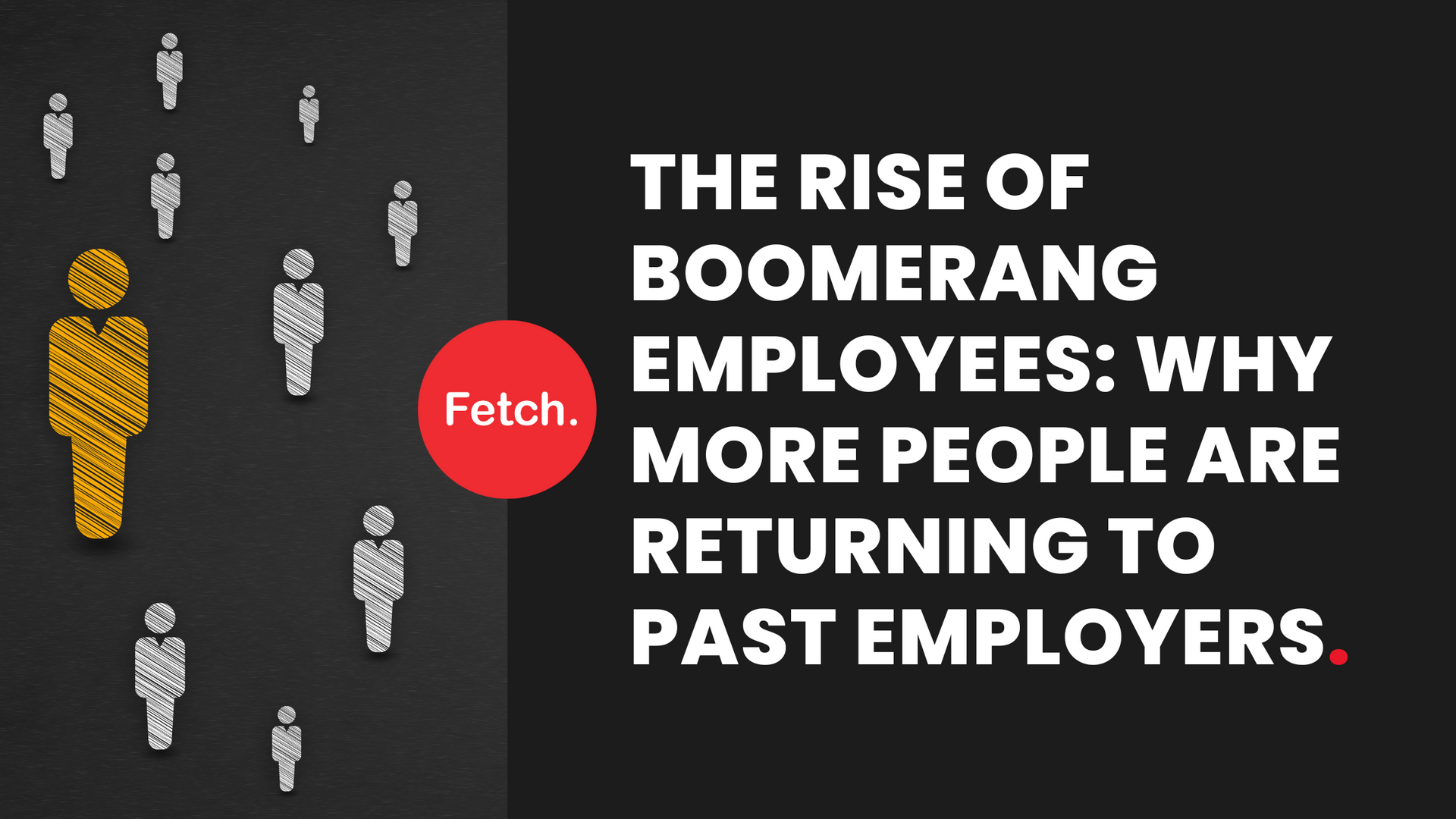
By Shazamme System User
•
August 26, 2025
Once upon a time, leaving a company meant leaving for good. Changing jobs was a clean break, and going back was almost unheard of. Fast forward to today, and things look very different. The “boomerang employee” – someone who leaves a business only to return later – has gone from rare exception to a growing trend in the world of recruitment. Recent workforce data shows that around 35 per cent of all new hires globally in 2025 were boomerang employees . That’s more than a third of roles being filled by people who have worked for the company before. In industries struggling with skills shortages, such as technology, engineering and professional services, the numbers are even higher. Clearly, boomerang hires are reshaping modern recruitment. Why are employees returning? There are a few big reasons why people decide to go back to a former employer. The first is culture. A new job may offer better pay or a promotion, but if the culture doesn’t feel right, candidates often realise how valuable their old team, manager and work environment really were. The second is familiarity. Boomerang employees already know the systems, the processes and the people, so the onboarding process is smoother and productivity is faster. Finally, there’s what many are calling the “Great Regret.” During the wave of resignations post-COVID, plenty of professionals discovered that the grass isn’t always greener and that their previous employer was a better long-term fit. A real-life example: Shawn’s return to Fetch At Fetch Recruitment, we’ve seen this trend first-hand. Shawn worked with us in Melbourne from 2014 to 2018, before pursuing opportunities elsewhere. In July this year, he decided to return—this time joining our Perth office. When we asked him what drew him back, Shawn explained: “What drew me back was the people and the relationships I have with the directors and the direction the business is heading. Perth is at a similar stage right now to when I first started with Fetch.” On how Fetch compares to other workplaces, he added: “Management is not set in their ways, always looking to improve and listen to all staff members on how to do things differently.” And on coming back into the team: “I knew coming back to Fetch was never going to be hard. I’ve stayed in contact over the years and knew how they treat each other. When I left, they were supportive—and on my return, they’ve been even more supportive. The Perth team are just nice people.” Shawn’s story is a great example of how relationships, culture, and long-term support make all the difference. What does this mean for candidates? For jobseekers, the rise of boomerang employees is a reminder that your candidate experience doesn’t end when you resign . How you leave a role can shape your future opportunities. Exiting on good terms, keeping relationships positive and staying connected to your professional network means the door could open again when you least expect it. Returning to a past employer isn’t a step backwards. In fact, many boomerang hires re-join at a higher level, with new skills and experience that position them for career progression. Sometimes the best next move isn’t starting somewhere completely new, but going back to where you know you can thrive. What does this mean for employers? For organisations facing talent shortages and retention challenges , boomerang hires can be a powerful part of a recruitment strategy. Rehiring a former employee reduces risk, speeds up onboarding and strengthens engagement, as returning staff already understand the culture and expectations. Even better, they bring fresh insights and skills gained elsewhere. That combination of familiarity and new perspective can be invaluable in today’s competitive job market. This is also a reminder of the value of employer branding and alumni engagement. Companies that maintain strong connections with former employees – whether through structured alumni programmes, LinkedIn groups or informal networks – are far better placed to attract returning talent when roles open up. The takeaway The modern career path is no longer linear. People move across industries, switch sectors and increasingly circle back to places they know and trust. For candidates, this trend highlights the importance of leaving every job on good terms. For employers, it underlines the need for strong talent retention strategies and a thoughtful approach to alumni engagement. Because in recruitment, sometimes the best way to move forward is to bring valued people back.

October 12, 2025
Bringing new employees into your business is exciting, but it’s also a major investment. Between advertising, interviewing, onboarding, and training, hiring can take a lot of time and resources. That’s why improving employee retention during the first six months is so important. At Fetch Recruitment , we see firsthand how critical those first few months are in any new role. It’s when trust is built, expectations are defined, and company culture either connects or conflicts. Here are five proven strategies to reduce staff turnover , improve engagement, and set new hires up for long-term success. 1. Be Honest About the Role from the Start One of the biggest reasons employees leave early is that the job isn’t what they expected. When the reality of the role or culture doesn’t match what was described during hiring, disappointment sets in fast. Set clear and honest expectations from the very beginning. Be upfront about both the rewarding and challenging aspects of the job. Let candidates meet the team, see the workplace and ask questions before they start. The clearer the picture you paint, the stronger the long-term fit. 2. Make Onboarding More Than a First Week A great onboarding experience doesn’t end after induction — it’s an ongoing process that continues for months. Structured onboarding helps new hires feel capable, confident and connected. Give them time to understand your business, meet people from different teams and get comfortable in their role. Assign a buddy or mentor who can answer the small questions that make a big difference. Consistent check-ins and support will help new starters build momentum and stay engaged. 3. Set Clear Expectations and Shared Goals Clarity is everything in the first few months. When employees aren’t sure what success looks like or what’s expected of them, confidence and motivation can slip. Outline measurable goals together for the first three, six and twelve months. Discuss how progress will be tracked, what resources are available and how feedback will be shared. When expectations are mutual and transparent, accountability and trust follow. 4. Support, Feedback and Recognition Starting a new role can be daunting, even for experienced professionals. Regular check-ins and feedback make a huge difference in helping people feel seen and supported. Provide frequent, constructive feedback — not just at review time. Celebrate wins early and often, even the small ones. Open communication and recognition build confidence, reduce anxiety and help new hires settle into your workplace culture faster. 5. Invest in Growth from Day One People want to know they’re building a future, not just filling a role. The first six months are the perfect time to show new hires you’re invested in their development. Offer access to training, mentoring or skill-building opportunities early on. Encourage shadowing, collaboration and hands-on learning. When employees can see a clear path to growth, they’re more likely to stay engaged and loyal for the long term. Building Retention Into Recruitment Hiring doesn’t end when the offer is signed. The success of every hire depends on what happens next. When you combine transparency, structured onboarding, clear goals, regular feedback and early development opportunities, you don’t just fill roles — you build teams that last. Fetch Recruitment partners with employers across Australia to help them find, engage and retain great people.

By Shazamme System User
•
August 26, 2025
Once upon a time, leaving a company meant leaving for good. Changing jobs was a clean break, and going back was almost unheard of. Fast forward to today, and things look very different. The “boomerang employee” – someone who leaves a business only to return later – has gone from rare exception to a growing trend in the world of recruitment. Recent workforce data shows that around 35 per cent of all new hires globally in 2025 were boomerang employees . That’s more than a third of roles being filled by people who have worked for the company before. In industries struggling with skills shortages, such as technology, engineering and professional services, the numbers are even higher. Clearly, boomerang hires are reshaping modern recruitment. Why are employees returning? There are a few big reasons why people decide to go back to a former employer. The first is culture. A new job may offer better pay or a promotion, but if the culture doesn’t feel right, candidates often realise how valuable their old team, manager and work environment really were. The second is familiarity. Boomerang employees already know the systems, the processes and the people, so the onboarding process is smoother and productivity is faster. Finally, there’s what many are calling the “Great Regret.” During the wave of resignations post-COVID, plenty of professionals discovered that the grass isn’t always greener and that their previous employer was a better long-term fit. A real-life example: Shawn’s return to Fetch At Fetch Recruitment, we’ve seen this trend first-hand. Shawn worked with us in Melbourne from 2014 to 2018, before pursuing opportunities elsewhere. In July this year, he decided to return—this time joining our Perth office. When we asked him what drew him back, Shawn explained: “What drew me back was the people and the relationships I have with the directors and the direction the business is heading. Perth is at a similar stage right now to when I first started with Fetch.” On how Fetch compares to other workplaces, he added: “Management is not set in their ways, always looking to improve and listen to all staff members on how to do things differently.” And on coming back into the team: “I knew coming back to Fetch was never going to be hard. I’ve stayed in contact over the years and knew how they treat each other. When I left, they were supportive—and on my return, they’ve been even more supportive. The Perth team are just nice people.” Shawn’s story is a great example of how relationships, culture, and long-term support make all the difference. What does this mean for candidates? For jobseekers, the rise of boomerang employees is a reminder that your candidate experience doesn’t end when you resign . How you leave a role can shape your future opportunities. Exiting on good terms, keeping relationships positive and staying connected to your professional network means the door could open again when you least expect it. Returning to a past employer isn’t a step backwards. In fact, many boomerang hires re-join at a higher level, with new skills and experience that position them for career progression. Sometimes the best next move isn’t starting somewhere completely new, but going back to where you know you can thrive. What does this mean for employers? For organisations facing talent shortages and retention challenges , boomerang hires can be a powerful part of a recruitment strategy. Rehiring a former employee reduces risk, speeds up onboarding and strengthens engagement, as returning staff already understand the culture and expectations. Even better, they bring fresh insights and skills gained elsewhere. That combination of familiarity and new perspective can be invaluable in today’s competitive job market. This is also a reminder of the value of employer branding and alumni engagement. Companies that maintain strong connections with former employees – whether through structured alumni programmes, LinkedIn groups or informal networks – are far better placed to attract returning talent when roles open up. The takeaway The modern career path is no longer linear. People move across industries, switch sectors and increasingly circle back to places they know and trust. For candidates, this trend highlights the importance of leaving every job on good terms. For employers, it underlines the need for strong talent retention strategies and a thoughtful approach to alumni engagement. Because in recruitment, sometimes the best way to move forward is to bring valued people back.

October 12, 2025
Bringing new employees into your business is exciting, but it’s also a major investment. Between advertising, interviewing, onboarding, and training, hiring can take a lot of time and resources. That’s why improving employee retention during the first six months is so important. At Fetch Recruitment , we see firsthand how critical those first few months are in any new role. It’s when trust is built, expectations are defined, and company culture either connects or conflicts. Here are five proven strategies to reduce staff turnover , improve engagement, and set new hires up for long-term success. 1. Be Honest About the Role from the Start One of the biggest reasons employees leave early is that the job isn’t what they expected. When the reality of the role or culture doesn’t match what was described during hiring, disappointment sets in fast. Set clear and honest expectations from the very beginning. Be upfront about both the rewarding and challenging aspects of the job. Let candidates meet the team, see the workplace and ask questions before they start. The clearer the picture you paint, the stronger the long-term fit. 2. Make Onboarding More Than a First Week A great onboarding experience doesn’t end after induction — it’s an ongoing process that continues for months. Structured onboarding helps new hires feel capable, confident and connected. Give them time to understand your business, meet people from different teams and get comfortable in their role. Assign a buddy or mentor who can answer the small questions that make a big difference. Consistent check-ins and support will help new starters build momentum and stay engaged. 3. Set Clear Expectations and Shared Goals Clarity is everything in the first few months. When employees aren’t sure what success looks like or what’s expected of them, confidence and motivation can slip. Outline measurable goals together for the first three, six and twelve months. Discuss how progress will be tracked, what resources are available and how feedback will be shared. When expectations are mutual and transparent, accountability and trust follow. 4. Support, Feedback and Recognition Starting a new role can be daunting, even for experienced professionals. Regular check-ins and feedback make a huge difference in helping people feel seen and supported. Provide frequent, constructive feedback — not just at review time. Celebrate wins early and often, even the small ones. Open communication and recognition build confidence, reduce anxiety and help new hires settle into your workplace culture faster. 5. Invest in Growth from Day One People want to know they’re building a future, not just filling a role. The first six months are the perfect time to show new hires you’re invested in their development. Offer access to training, mentoring or skill-building opportunities early on. Encourage shadowing, collaboration and hands-on learning. When employees can see a clear path to growth, they’re more likely to stay engaged and loyal for the long term. Building Retention Into Recruitment Hiring doesn’t end when the offer is signed. The success of every hire depends on what happens next. When you combine transparency, structured onboarding, clear goals, regular feedback and early development opportunities, you don’t just fill roles — you build teams that last. Fetch Recruitment partners with employers across Australia to help them find, engage and retain great people.

By Shazamme System User
•
August 26, 2025
Once upon a time, leaving a company meant leaving for good. Changing jobs was a clean break, and going back was almost unheard of. Fast forward to today, and things look very different. The “boomerang employee” – someone who leaves a business only to return later – has gone from rare exception to a growing trend in the world of recruitment. Recent workforce data shows that around 35 per cent of all new hires globally in 2025 were boomerang employees . That’s more than a third of roles being filled by people who have worked for the company before. In industries struggling with skills shortages, such as technology, engineering and professional services, the numbers are even higher. Clearly, boomerang hires are reshaping modern recruitment. Why are employees returning? There are a few big reasons why people decide to go back to a former employer. The first is culture. A new job may offer better pay or a promotion, but if the culture doesn’t feel right, candidates often realise how valuable their old team, manager and work environment really were. The second is familiarity. Boomerang employees already know the systems, the processes and the people, so the onboarding process is smoother and productivity is faster. Finally, there’s what many are calling the “Great Regret.” During the wave of resignations post-COVID, plenty of professionals discovered that the grass isn’t always greener and that their previous employer was a better long-term fit. A real-life example: Shawn’s return to Fetch At Fetch Recruitment, we’ve seen this trend first-hand. Shawn worked with us in Melbourne from 2014 to 2018, before pursuing opportunities elsewhere. In July this year, he decided to return—this time joining our Perth office. When we asked him what drew him back, Shawn explained: “What drew me back was the people and the relationships I have with the directors and the direction the business is heading. Perth is at a similar stage right now to when I first started with Fetch.” On how Fetch compares to other workplaces, he added: “Management is not set in their ways, always looking to improve and listen to all staff members on how to do things differently.” And on coming back into the team: “I knew coming back to Fetch was never going to be hard. I’ve stayed in contact over the years and knew how they treat each other. When I left, they were supportive—and on my return, they’ve been even more supportive. The Perth team are just nice people.” Shawn’s story is a great example of how relationships, culture, and long-term support make all the difference. What does this mean for candidates? For jobseekers, the rise of boomerang employees is a reminder that your candidate experience doesn’t end when you resign . How you leave a role can shape your future opportunities. Exiting on good terms, keeping relationships positive and staying connected to your professional network means the door could open again when you least expect it. Returning to a past employer isn’t a step backwards. In fact, many boomerang hires re-join at a higher level, with new skills and experience that position them for career progression. Sometimes the best next move isn’t starting somewhere completely new, but going back to where you know you can thrive. What does this mean for employers? For organisations facing talent shortages and retention challenges , boomerang hires can be a powerful part of a recruitment strategy. Rehiring a former employee reduces risk, speeds up onboarding and strengthens engagement, as returning staff already understand the culture and expectations. Even better, they bring fresh insights and skills gained elsewhere. That combination of familiarity and new perspective can be invaluable in today’s competitive job market. This is also a reminder of the value of employer branding and alumni engagement. Companies that maintain strong connections with former employees – whether through structured alumni programmes, LinkedIn groups or informal networks – are far better placed to attract returning talent when roles open up. The takeaway The modern career path is no longer linear. People move across industries, switch sectors and increasingly circle back to places they know and trust. For candidates, this trend highlights the importance of leaving every job on good terms. For employers, it underlines the need for strong talent retention strategies and a thoughtful approach to alumni engagement. Because in recruitment, sometimes the best way to move forward is to bring valued people back.

